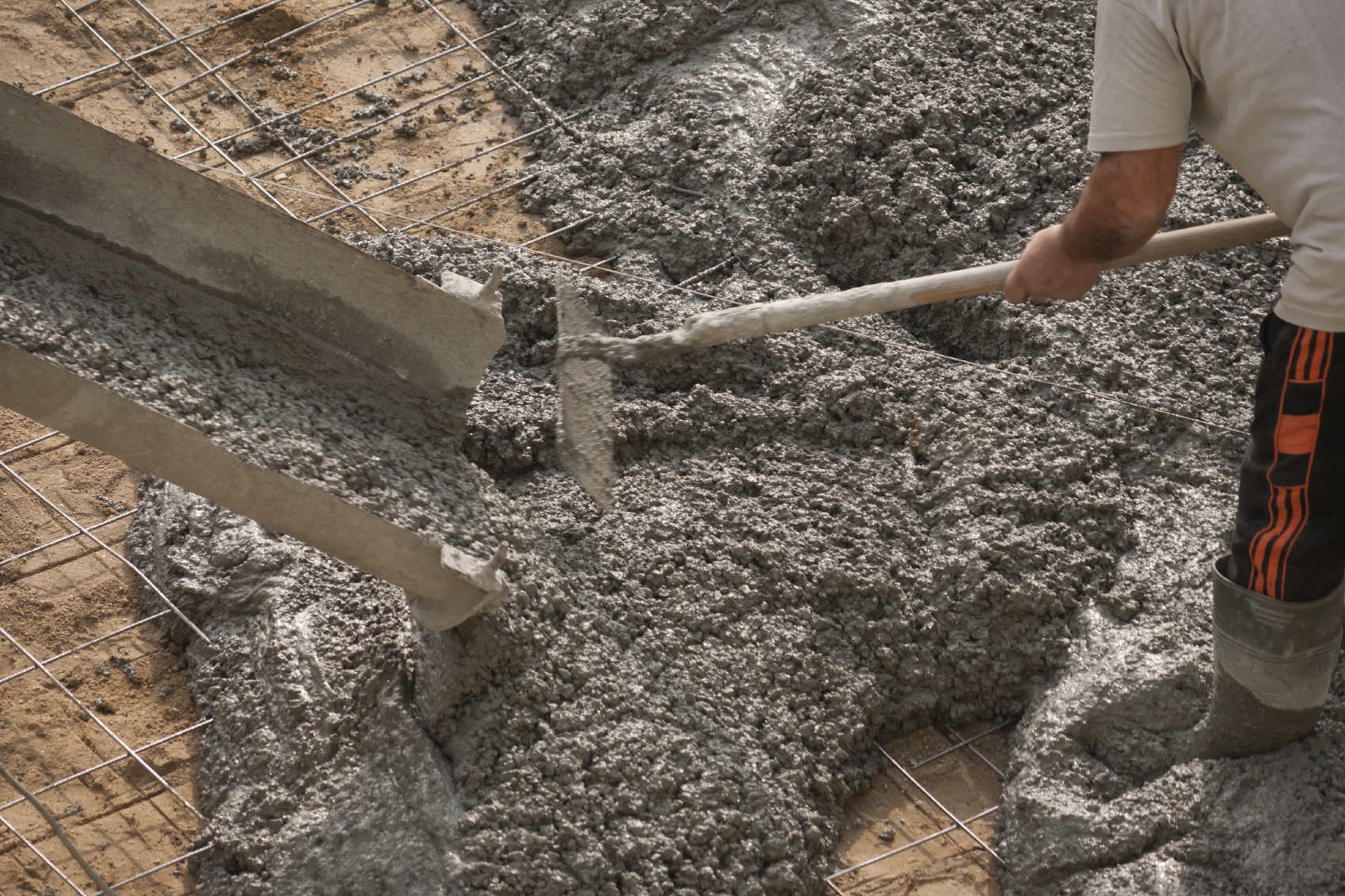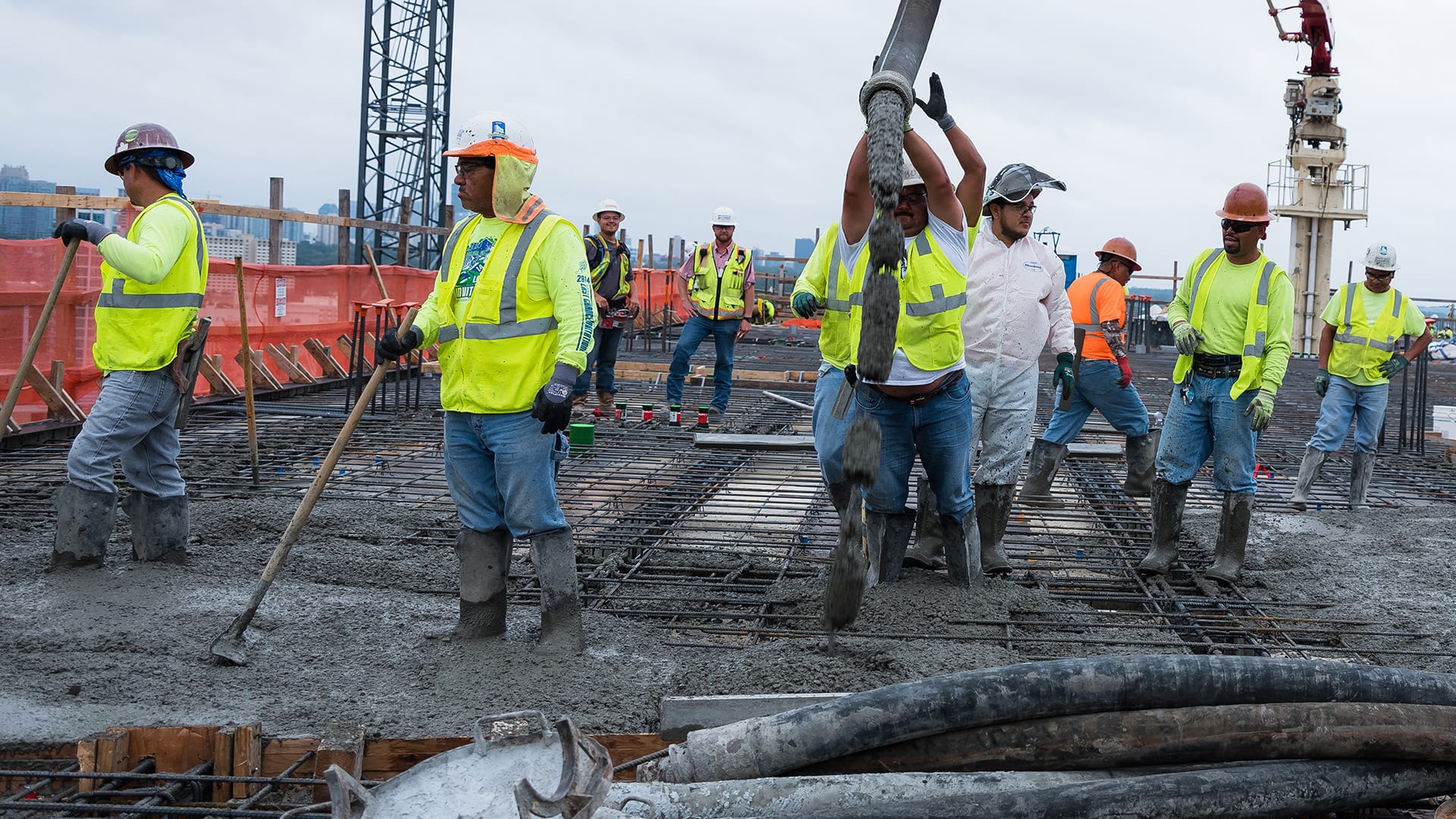Recognizing the Numerous Applications of General Engineering Concrete in Diverse Industries
When you consider the many ways general engineering concrete effects numerous sectors, you'll find its applications are both broad and vital. From giving sturdy foundations for transportation networks to supporting ingenious power services, this material plays a crucial function in forming our framework. What about its influence on urban development and environmental engineering? Exploring these facets can reveal a lot more than you may expect.
The Function of Concrete in Building and Structure Projects
Concrete plays a necessary duty in building and construction and structure jobs, comprising about 70% of all materials used in modern frameworks. You'll locate it in structures, walls, and floors, providing toughness and resilience. When you choose concrete, you're selecting a product that can hold up against weather, withstand fire, and support heavy tons. Its convenience enables numerous applications, from property homes to imposing skyscrapers.Mixing concrete with additives can enhance its residential properties, enhancing workability and setting times. You can also mold and mildew it into different forms, permitting creativity in layout. As you work with your projects, take into consideration the ecological benefits of making use of concrete, such as its capability to reduce power usage in buildings. On the whole, concrete's dependability and adaptability make it a keystone of the building industry, making certain that structures are not just practical yet likewise safe and resilient.
Infrastructure Growth: Roads, Bridges, and Passages
When it concerns framework development, roadways, bridges, and passages are vital components that attach communities and assist in transportation. You count on these frameworks daily, whether you're commuting to function or taking a trip cross countries. General engineering concrete plays an essential function in their building and construction and toughness. Its strength and adaptability permit engineers to make robust roadways that hold up against heavy website traffic and harsh climate conditions.Bridges, commonly spanning rivers and valleys, need particularly developed concrete to assure security and long life. Making use of strengthened concrete in passage building and construction not only sustains significant weight yet also enhances resistance against water seepage and ground activity.

Concrete in Transport: Enhancing Wheelchair and Security
As you browse with bustling cities and country roads, the role of concrete in transport becomes evident, substantially improving both mobility and security. Concrete's resilience guarantees that roads, runways, and bridges withstand hefty traffic and rough climate condition. This durability decreases the need for constant repair work, maintaining your journeys smooth and reliable.In addition, the layout versatility of concrete permits innovative frameworks like overpasses and tunnels, which properly decrease blockage and boost traffic circulation. You'll see that concrete surfaces likewise provide better grip, decreasing the possibility of crashes in wet conditions.Moreover, using concrete in trains aids maintain stability and security for trains, making your trips more effective. On the whole, concrete's contributions to transportation not just boost your mobility but likewise substantially bolster public safety, showing its necessary duty in the infrastructure you depend upon day-to-day.

Energy Sector Applications: From Power Plants to Renewable Power
In the power industry, concrete plays a significant duty in the building and operation of power plants and eco-friendly power installments. You'll discover it important for developing sturdy structures, supports, and control structures that hold up against extreme problems. In thermal power plants, enhanced concrete structures assure security and sturdiness versus high temperatures and pressure. WCGE commercial concrete.When it comes to renewable resource, concrete is important for wind generator bases, solar panel mounts, and hydroelectric dams. It supplies the security required to harness energy successfully. You could not realize it, however the concrete utilized in these applications is particularly formulated to meet certain efficiency standards, like resilience and resistance to environmental aspects
Cutting-edge Concrete Solutions in Environmental Design

The Impact of Concrete on Urban Development and Landscaping
Concrete plays a crucial duty fit urban advancement and landscaping, influencing whatever from facilities longevity to visual allure. When you think of cityscapes, concrete structures like bridges, roads, and buildings enter your mind, pop over to this site providing a sturdy foundation for urban life. You'll discover how well-designed concrete pathways and plazas enhance public rooms, making them more welcoming and functional.In hard rock concrete landscape design, concrete deals convenience, making it possible for imaginative layouts for outdoor patios, maintaining walls, and ornamental features. You can create one-of-a-kind exterior areas that blend perfectly with nature while maintaining architectural honesty. Furthermore, concrete's capability to endure weather extremes warranties long life, minimizing the need for frequent fixings.
Future Patterns and Developments in General Design Concrete
As metropolitan landscapes develop, the need for cutting-edge concrete options is driving developments as a whole design. You'll discover trends leaning in the direction of environment-friendly materials and lasting methods. Scientists are concentrating on developing high-performance concrete that lowers environmental impact without compromising strength.Next-gen additives and blends, like recycled accumulations and bio-based materials, are obtaining grip, enhancing durability and lowering carbon footprints. Smart concrete modern technology is likewise arising, integrating sensing units that keep an eye on architectural wellness in real-time, permitting aggressive maintenance.You might locate that 3D printing with concrete is becoming a lot more viable, allowing intricate designs and faster building timelines. In addition, the combination of self-healing concrete gets on the surge, guaranteeing long life and reducing repair work expenses.
Regularly Asked Questions
What Are the Environmental Effects of Concrete Manufacturing?
Concrete production generates considerable carbon exhausts, eats water, and depletes natural resources. You can alleviate these influences by discovering sustainable alternatives, enhancing mix styles, and including recycled products to reduce your environmental footprint and enhance sustainability.
Exactly How Does Concrete Contrast to Various Other Structure Products?
Concrete's longevity and strength frequently outperform materials like wood and steel. It's flexible, economical, and energy-efficient, yet its ecological impact can be significant. You'll want to evaluate these elements when selecting building materials.
What Are the Various Types of Concrete Available?
There're several kinds of concrete offered, including criterion, strengthened, high-strength, lightweight, and attractive. Each type serves details functions, so you can choose the one that best fits your task's requirements and needs.
Exactly How Is Concrete Recycled and Reused in Building and construction?
You can recycle concrete by squashing it into accumulation, which you then recycle in brand-new building and construction projects (Concrete Contractors Rancho Cucamonga). This procedure reduces waste, reduces prices, and reduces the ecological impact of sourcing new products for your builds
What Safety Procedures Are Required When Working With Concrete?
When dealing with concrete, you need to wear safety decorative concrete construction gear, like gloves and safety glasses, warranty proper ventilation, and make use of safe lifting methods. Constantly comply with security standards to prevent injuries and preserve a safe and secure workplace.